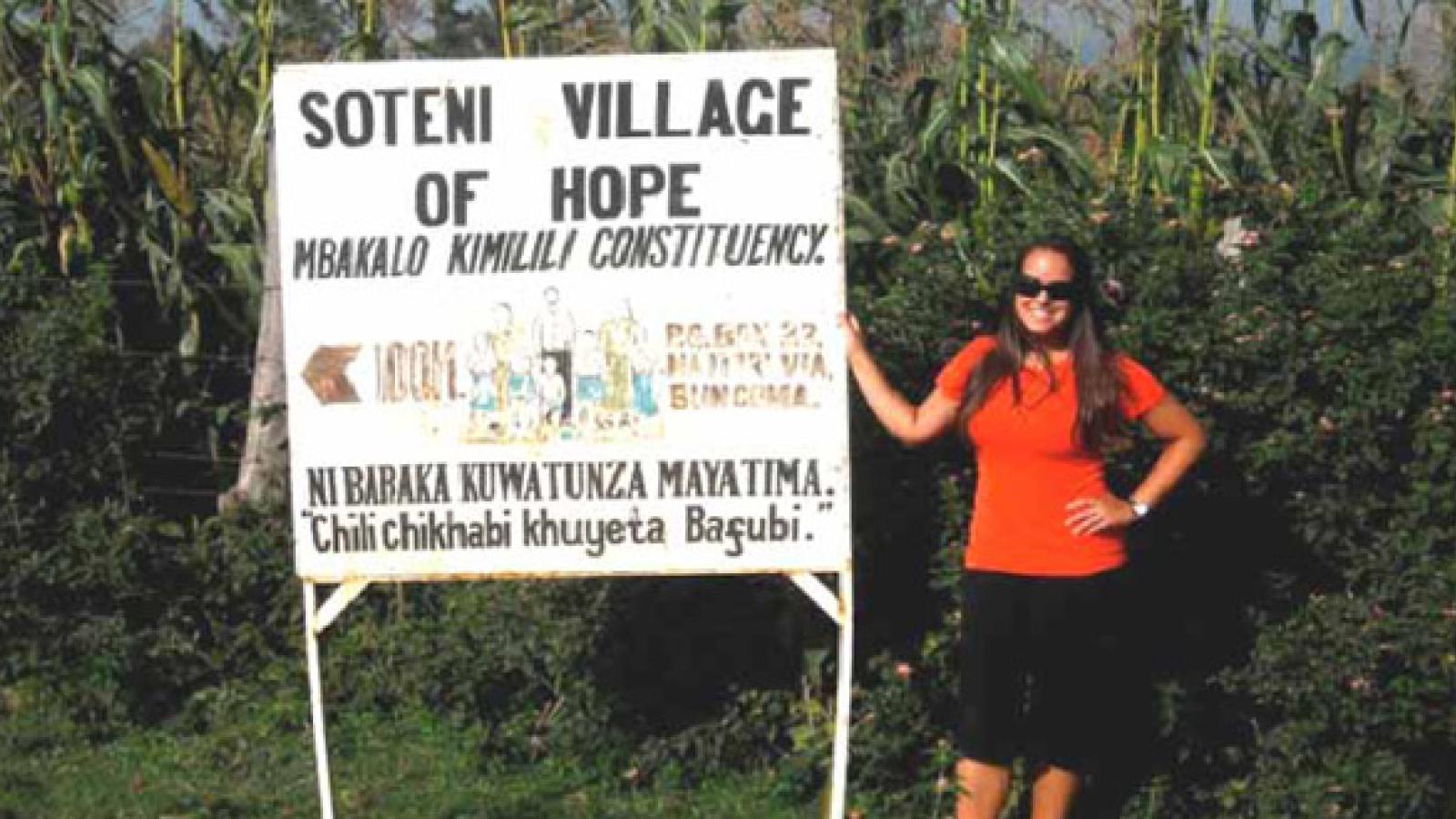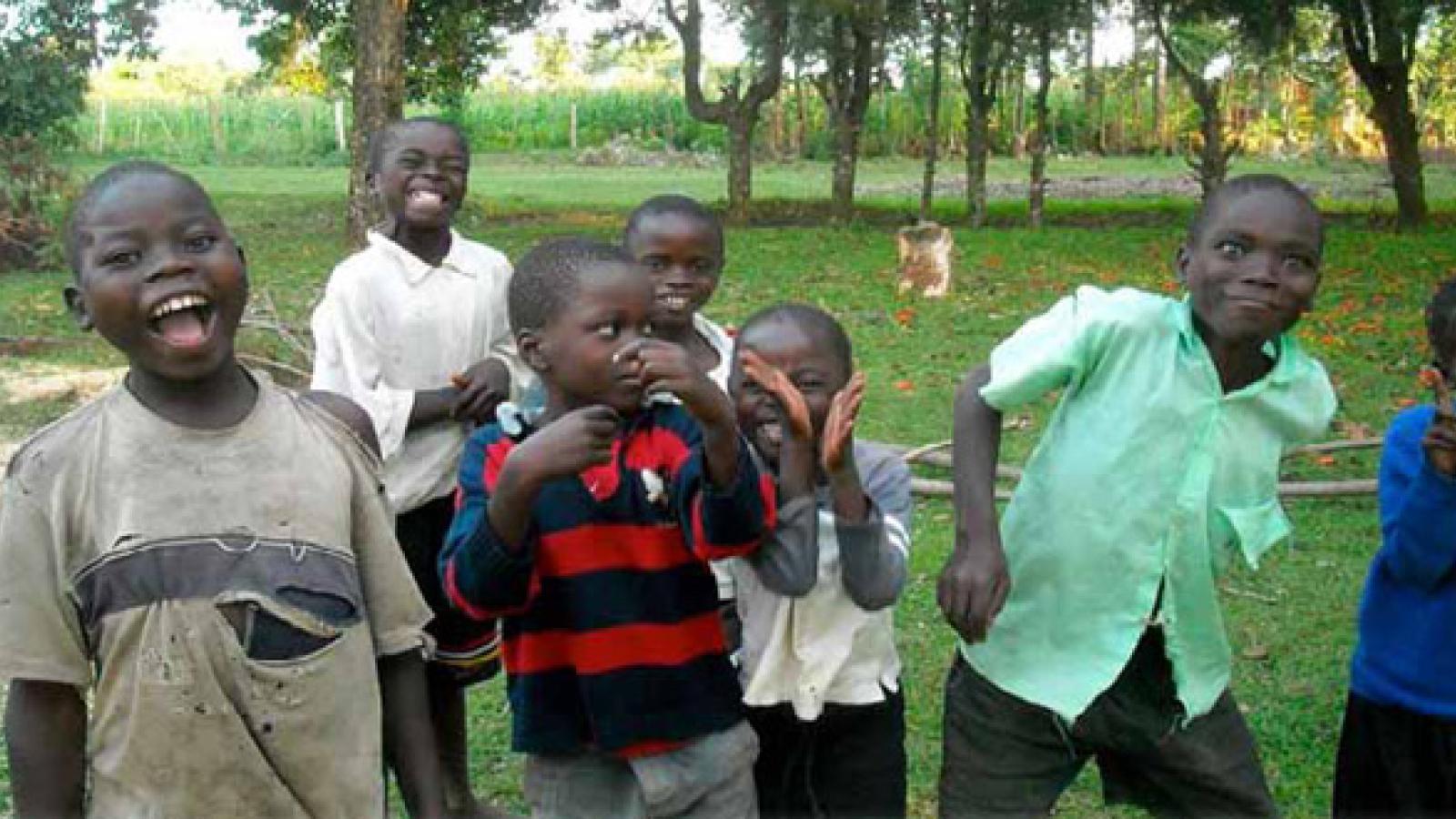Soteni International, Kenya
Alexa Gudelsky
This past spring I was determined to find an internship abroad doing development work. One evening I was at a family dinner discussing my future with my friend when her mother introduced me to SOTENI International. As a practicing doctor in Cincinnati she was not only familiar with SOTENI International but knew the director of the non‐profit as well. She told me this organization works in Kenya and is involved in public health projects, specifically those related to HIV prevention. Knowing my passion for this kind of work, she thought I would be a good candidate for one of their internship positions.
I was very excited about this opportunity! I immediately contacted the director at the main office in Cincinnati, and I was informed that they had available internships abroad for the summer. I sent in my resume and after a phone interview, I was accepted. I departed for Nairobi, Kenya right after final exams in June 2011.
During my stay, I traveled from Nairobi to peripheral offices in two different rural locations. For one of the trips, we missed our bus and ended up hopping on another that took a longer route to go to the same general region. To get to the final destination we were "stuffed" into a local van called a matatu that has seats for 11, although we shared the ride with 21 other people. It was pouring rain, ourselves and our luggage were soaked, and the locals both on the van and outside were fascinated with Americans. In fact, since they all love President Obama so much, they would cheer “yeah‐ Obama” at every stop. Our presence created a bit of a ruckus, and made the trip "more interesting" for everyone involved.
SOTENI is currently partnering with Proctor & Gamble International to work on clean water projects in remote areas. We were distributing water filtration kits to members of HIV support groups in various villages. I then visited these groups to assess changes in their health and gather the overall feedback for this product. I also worked on a needs assessment of the multi-village region to be served by a dispensary. Our task was to go from house to house with a 25 question survey to learn about the residents’ knowledge on such topics as sanitation, water, mosquito control and maternal health care. The dispensary is still fairly new to the area, so SOTENI wanted to make sure they were utilizing their resources to the best of their ability. The most popular reasons for locals to visit the dispensary were to be given vaccinations, to give birth, and to be treated for typhoid or malaria. Malaria was endemic to the region and luckily none of the interns ever became seriously ill. We always made sure to use our bug‐spray and sleep under mosquito nets.
I’ve done a lot of volunteering abroad in the past, but this was the most substantial and demanding project I have ever worked on. We did not even have plumbing or electricity, so every task was a challenge. I have learned that only small steps can be taken in such an environment and that one needs to celebrate small accomplishments. Yet at the same time, it is important to recognize that there is so much more work to do in developing countries.
My advice to future interns is to always be modest and humble when stepping into a new environment. In situations like this you are the outsider, so it is important to create relationships and trust. Also, in developing countries such as Kenya, Murphy’s law is always in effect. If anything can go wrong, it will. You need to be flexible and have a fantastic sense of humor, because you will need both!


